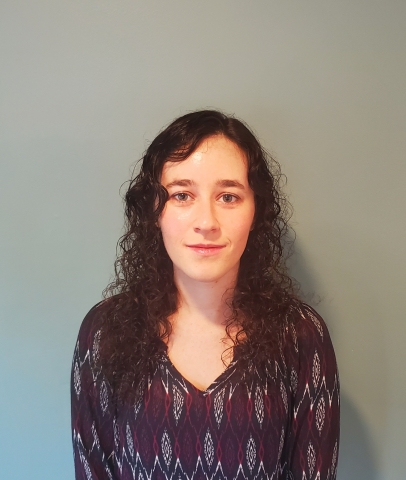Hallie Fausey – Michelle & Julian Francis Scholar
2nd Year Scholar, PhD candidate, Physics
The George Washington University
Research:
This research involves studying gamma-ray bursts (GRBs), with observational data from some of the largest telescopes on earth while collaborating with scientists around the world. In addition, this research will support evaluating and optimizing the capabilities of new instrumentation to further their studies in the future.
How Will Your Research Benefit Society?
Studying GRBs allows us to examine the history of the universe and learn about the environments of the first galaxies and stars that created the material of which we are made, giving us an opportunity to learn more about where we come from. This fundamental and foundational research is performed in combination with others from STARGATE, an international collaboration dedicated to GRB observations and science. While STARGATE is most notable for its valuable contributions to GRB science, it also fosters a collaborative environment between scientists of various nationalities and backgrounds, pushing astrophysics forward together.
How will an ARCS Award Benefit Your Research?
Last year I used the ARCS award to fund a trip abroad to work with collaborators from STARGATE on a project examining GRB 210905A, a high-redshift GRB with one of the most luminous late-time afterglows ever observed. This trip abroad led to the publication of a paper. This year, the ARCS award will help fund another trip abroad to the UK to work in close contact with collaborators in the UK at Universities of Leicester, Hertfordshire, Birmingham, and Bath. It will also provide me with the opportunity to work on a new project examining another high-redshift gamma-ray burst, GRB 130606A.
Career objectives:
In the future I hope to go into academia. I would love the opportunity to teach and share my passion for astrophysics with others while continuing my research and contributing to the field. I plan to continue and broaden my research in high-energy astrophysics, on GRBs and other probes of the early Universe, by assessing what we can learn with current technology, and establishing how we can push the science forward with future instruments. In terms of teaching, which is a crucial component of any academic position, I would love to apply what I have learned in my own courses while also incorporating my own ideas on inclusive pedagogy.

